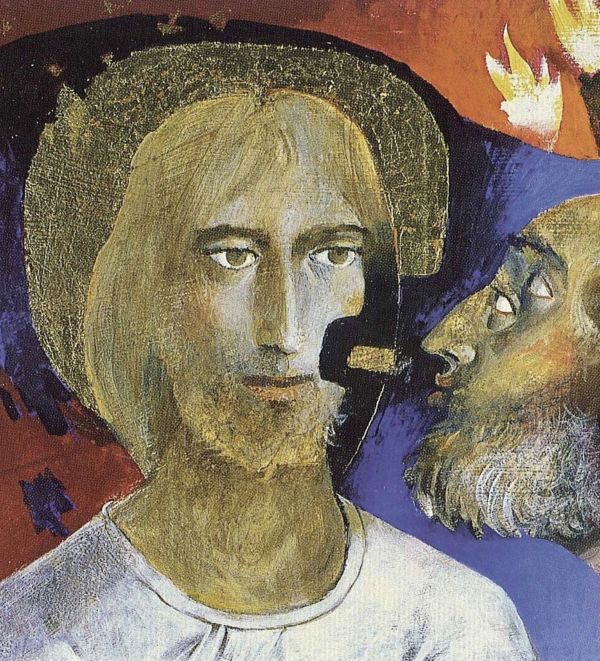In today's Gospel, Jesus calls those who listen to love those who behave as enemies.
«Love your enemies, do good to those who hate you» (Lk 6:27).
Francis loved those who mocked and judged him - and invited his brothers to do likewise.
In the Sources:
"Deeply humble and mature in charity, each nurtured for his brother the sentiments one has towards a father and lord [...] They were careful not to fall victim to unbridled desires. They were implacable judges of themselves, concerned not to harm one another in any way" (FF 1448).
"If it sometimes happened that a brother missed a word that could hurt, the remorse of conscience would not let him rest until he confessed his mistake, humbly throwing himself to the ground and begging the offended person to put his foot over his mouth.
And in the Letter to the Faithful, Francis, speaking of enemies, expresses himself thus:
"We must love our enemies and do good to those who hate us. We must also deny ourselves and place our bodies under the yoke of service and holy obedience, as each one has promised to the Lord" (FF196).
The holy father, if he was misjudged by men or his brothers were singled out, reminded himself and them that therein lies the perfect joy of one who is poor in heart.
The Sources illustrate:
"There were therefore conflicting opinions about these evangelical men. Some regarded them as madmen and fixated; others maintained that their talk came from anything but dementia.
One of the hearers remarked: 'These here are either united to God in an extraordinarily perfect way, or they are true fools, for they lead a desperate life: they eat almost nothing, they walk barefoot, they have miserable clothes'" (FF 1437).
Furthermore, Francis abhorred detraction like a plague.
In fact we read:
"The vice of detraction, the radical enemy of piety and Grace, he abhorred it as the bite of the serpent and as the most harmful pestilence.
He affirmed that the most pitiful God has it in abomination, because the detractor feeds on the blood of souls, after having killed them with the sword of the tongue [...].
Sometimes he judged that one who had stripped his brother of his good name should be stripped of his habit, and he did not want him to raise his eyes to God, if he had not first procured by all means to return what he had taken.
"The wickedness of detractors," he said, "is all the greater than that of thieves, the greater the force with which the law of Christ, which finds its fulfilment in love, compels us to desire the salvation of souls more than that of bodies.
«...for with the measure with which you measure, it will be measured back to you» (Lk 6:38).
7th Sunday in O.T. (C) (Lk 6,27-38)












